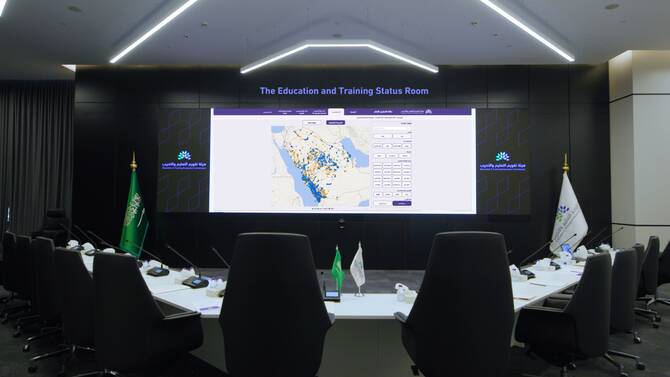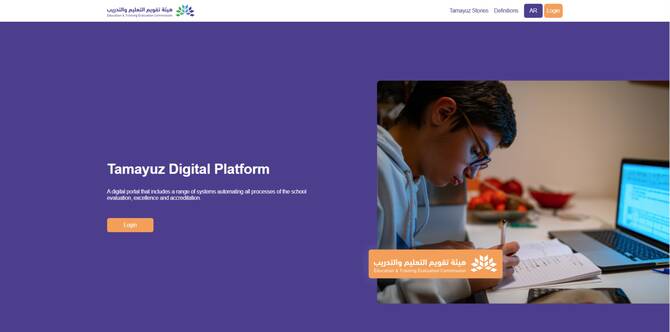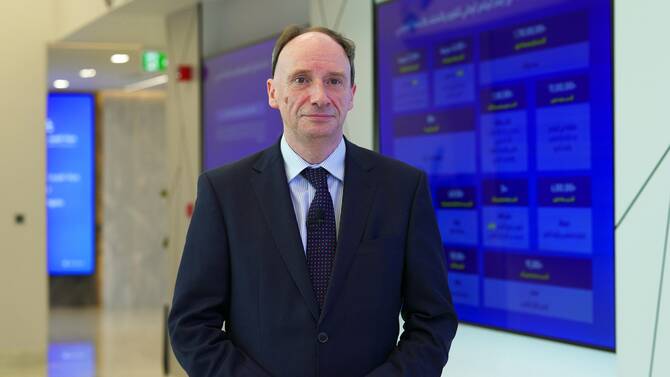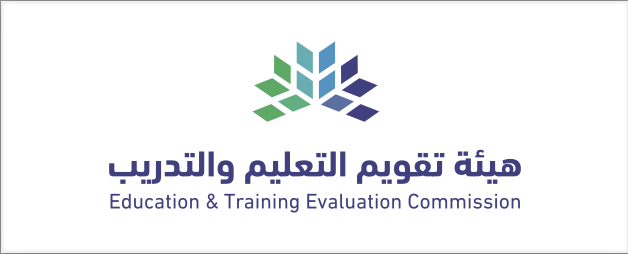As part of the ongoing technical cooperation between the Education and Training Evaluation Commission and the Organization for Economic Co-operation and Development, the OECD expert team recently concluded its visit to ETEC’s headquarters in Riyadh.
The visit featured exchanges of expertise and in-depth discussions on technical frameworks for measuring learning outcomes and evaluating schools within Saudi Arabia’s K–12 education system.
OECD delegates commended ETEC’s rapid development and institutional maturity, highlighting the significant progress made in evaluating K–12 education. They were particularly impressed by how the commission achieved such swift and inclusive progress, especially given the large scale of Saudi Arabia’s education system.
This was emphasized by Dr. Harold Hislop, head of the OECD Expert Team and former chief inspector for school evaluation in Ireland (2010–2020), who praised the scale and pace of Saudi Arabia’s school evaluation efforts.
He said: “The new school evaluation system that you've put in place is enormously impressive; the scale of being able to evaluate and work with over 23,000 schools in less than a two-year period! No other country in the world that I know of has been able to do anything like that on that scale and at that speed.”
He added: “We're learning an awful lot about what ETEC is doing so we can go to other countries with that information. You have developed a complete school evaluation process in less than five years. Now, no other country in the world has done that.”
He praised the evaluation model developed by ETEC to align with the Saudi context, saying: “And I thought there was one really impressive thing that struck me so strongly today. When talking to school leaders, they said, we now have an evaluation system that is a Saudi evaluation system for Saudi schools. It understands our context, it understands the circumstances of our schools, and it gives advice that suits our system. That's an enormous achievement.”
Expressing his appreciation for the commitment demonstrated by stakeholders at all levels to Saudi Arabia’s Vision 2030, Dr. Hislop remarked: “I would say I'm impressed by your commitment and vision to drive improvement, to make education and access to good quality education a driver to improve the lives of children and Saudi citizens for the future. That's a really strong commitment that I hear from everyone that I've met. It links to your Vision 2030 across the Kingdom, but it's consistent right the way through your organization.”
He highlighted the comprehensive nature of ETEC’s system and its efforts to engage parents in monitoring their children’s academic progress through the “Mustaqbalhum” app.
“I think, some countries have definitely developed some apps, or other applications, that do put some of the results of school evaluations into the hands of parents ... and some information. But I've never seen anything as comprehensive as yours, where you're linking student test data from the NAFS tests. You're providing information about your judgments on schools, you're providing enrollment data, and so on, in one system.
“Now, I'm not aware of any other system that has managed to do that. So maybe you'll start selling the technology to other people, because certainly they will be very interested in seeing it,” he added.
It is worth noting that the School Evaluation System for public, private, and international schools in the Kingdom is a comprehensive and integrated framework designed to assess the performance of K–12 schools.
It follows a continuous scientific methodology that gathers performance data using a range of tools and methods, analyzes the results against clearly defined standards and benchmarks, and provides actionable recommendations for improvement and development.
The system aims to promote a standards-based evaluation culture in schools, support continuous school improvement, and help schools achieve targeted learning outcomes.
It also encourages the participation of all stakeholders in evaluating and enhancing school performance, assists schools in identifying innovative solutions to meet their specific needs, and helps them optimize the use of available human and material resources. Furthermore, it provides comprehensive and reliable performance data that supports decision-making and enables effective education system management.
What distinguishes the Saudi evaluation system is its implementation through the Tameyuz digital platform, which oversees all evaluation processes and procedures.
Through this platform, more than 7 million surveys have been distributed, over 913,000 classroom observations conducted, more than 518,000 interviews completed, and over 146,000 users, including education personnel and officials, have accessed the system.
Tameyuz platform generates reports at multiple levels, serving national education policymakers, regional directorates, local education offices, schools, and parents. To date, it has produced more than 23,000 school evaluation reports and over 18,000 performance scorecards linked to the National Assessment for Schools or NAFS.
A key factor behind the success of the Saudi system is the strong partnership between ETEC and the Ministry of Education. This collaboration operates within a joint governance framework that balances institutional independence with coordinated implementation, enabling both entities to fulfill their respective responsibilities effectively in pursuit of a shared goal: enhancing education quality and advancing the Kingdom’s ambitious national objectives.
As part of its efforts to evaluate and enhance K–12 education, ETEC implements NAFS. The NAFS assessments are administered in grades three, six, and nine, and play a pivotal role in measuring and improving student academic achievement, promoting school excellence, and fostering constructive competition among schools, education offices, and regional education directorates.
NAFS assessments are carried out through a collaborative framework and ongoing coordination between ETEC and the Ministry of Education, aiming to achieve national goals — most importantly, the targets of Saudi Vision 2030 and the Human Capability Development Program, one of its flagship initiatives.
In 2025, NAFS was implemented for the fourth consecutive year, covering 1,358,224 students across 25,982 schools, including early childhood, elementary, and middle schools.
Launched in the 2023–2024 academic year, the School Evaluation and Classification Program has achieved extensive national reach. To date, 100 percent of schools (more than 24,000) have completed their self-evaluations, which serve as a foundational step in the evaluation process.
Following this, external evaluations have been conducted for over 23,000 schools, representing more than 93 percent of all public and private elementary, middle, and secondary schools across the Kingdom. These site visits were carried out by the External School Evaluation Team.
These evaluations have reached all corners of the Kingdom. More than 800 schools are visited weekly, spanning over 2,230 cities, towns, and rural communities, accessed by paved roads, desert routes, and even by sea when necessary. The operations are coordinated through a centralized command center, which has managed over 460,000 evaluation trips nationwide.
As of now, a total of 21,716 schools have been officially classified, including 10,955 girls’ schools and 10,761 boys’ schools.
ETEC has also launched the Mustaqbalhum app to strengthen parental engagement in their children’s educational journey. The app provides parents with valuable information and tools to enhance awareness, monitor academic performance, and assess skills and abilities, ultimately supporting their children’s overall development and future success.
The application includes the Your Child’s Future assessment tools, which are designed to diagnose and measure children’s cognitive and academic abilities.
These tools are organized into two main categories. The first category, Achievement Assessments, consists of instruments that evaluate students’ academic knowledge and skills.
For example, it includes the Arabic Language Assessment for young learners, a brief, optional assessment that is not directly linked to the school curriculum and is intended to measure children’s language proficiency.
This category also features the Qudrati (My Abilities) Assessment, a suite of tools that assess general cognitive abilities such as comprehension, analysis, reasoning, and application. It focuses on identifying students’ learning potential and simulates the General Aptitude Test used as a college entrance exam by all public universities in Saudi Arabia.
The second category includes Practice and Training Assessments, which are designed to help students prepare for college entrance exams. These assessments include practice for the General Aptitude Test, which evaluates learning-related abilities such as analytical and reasoning skills in secondary school graduates seeking admission to higher education institutions.
They also offer training for the Achievement Test, which measures academic achievement across various secondary school subjects and is required for university admission in Saudi Arabia. In addition, the tools provide practice for the STEP (Standardized Test of English Proficiency), which assesses students’ English language proficiency across key measurable language skills.
ETEC prepares detailed reports on its various evaluation processes and shares them with the Ministry of Education and other relevant stakeholders.
Each school receives an individual performance report based on school evaluation and classification standards.
In addition, the commission provides schools, education directorates, and their offices with student performance scorecards from the national assessments.
ETEC also compiles regional education reports for the Kingdom’s governorships.
Moreover, the commission provides the Ministry of Education with comprehensive individual-level data and key educational performance indicators.
To maximize the impact of its evaluation, assessment, and accreditation activities, the commission has recently developed the Education and Training Status Room, a national developmental tool designed to leverage the full potential of data across all levels of education.
The platform is designed to provide a comprehensive overview of the state of K–12 education, higher education, and training, along with in-depth analytical use cases that address key policy questions and inform education and training practices.
It offers policymakers, educational leaders, and stakeholders real-time, continuous access to the latest data and insights, enhancing transparency and improving the effectiveness and timeliness of decisions at both the strategic and operational levels.
The platform is distinguished by its comprehensive data presentation and continuous automated updates. It is also designed with a dynamic and flexible architecture that enables decision-makers to explore trends and patterns that support both strategic and operational decisions in education and training.
In addition, the platform offers a holistic view of all aspects of education and training, featuring a range of in-depth analyses that address key questions related to improving educational quality, anticipating impacts on the economy and national development, and creating new opportunities for targeted discussions and deeper data exploration.
Work on the platform began in early 2025. It currently contains more than 200,000 data points detailing the state of K–12 education, higher education, and training, along with 19 in-depth analyses that incorporate over 45,000 descriptive and inferential statistics.















